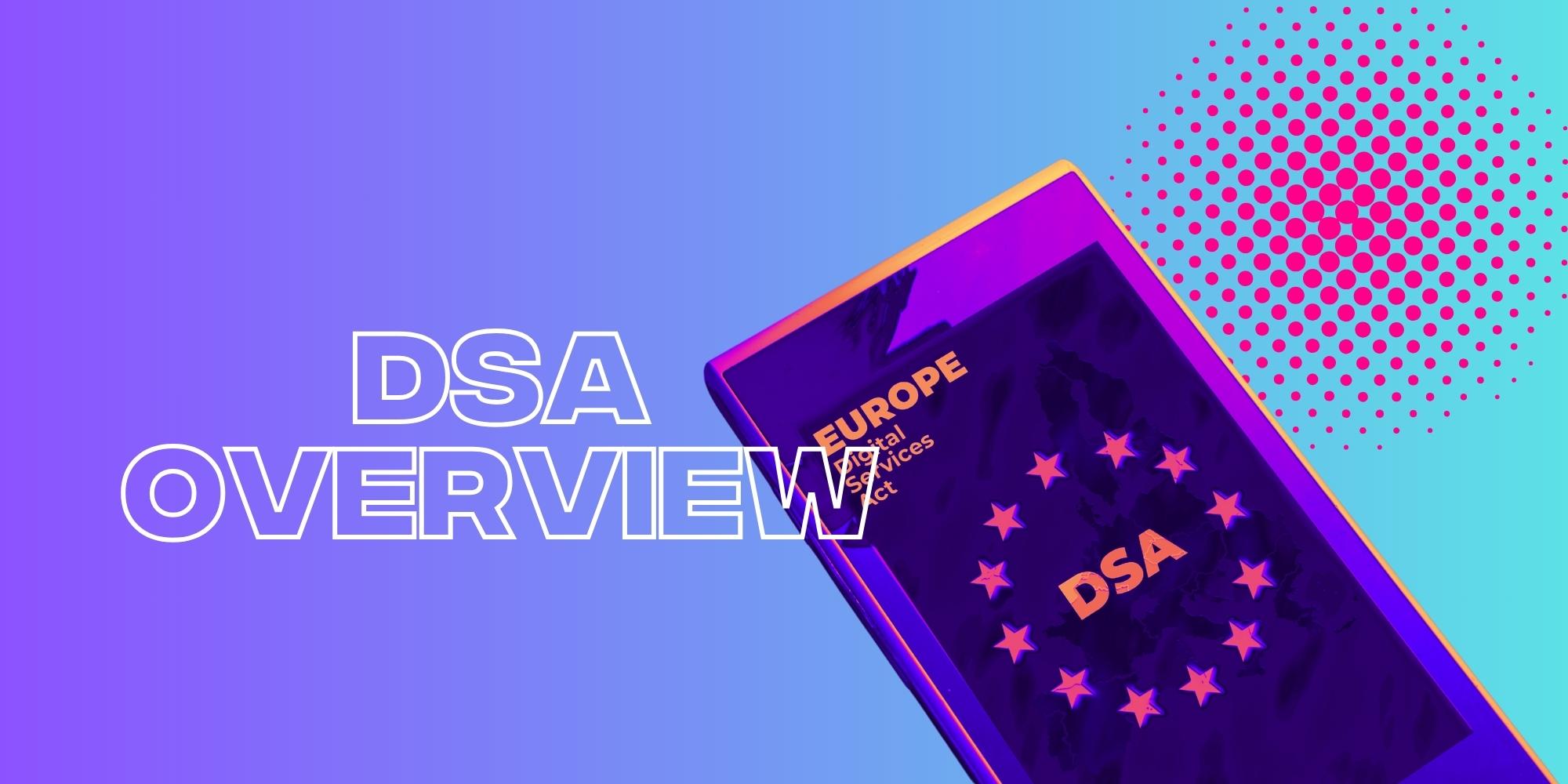What Is The Digital Services Act, And What Is Its Impact?
Oct 25, 2023
Social Media Marketing News

The introduction of the European Union’s Digital Services Act has been a hot topic amongst the digital marketing community since its inception in August of 2023; and rightly so.
But exactly what is the Digital Services Act?
This historic regulation will force more than forty of the biggest online businesses around to pull up their socks when it comes to user safety and data usage. Companies such as TikTok, Facebook and even Google are now under the DSA’s thumb when it comes to safety.
But how will these new regulations actually impact social media marketing? Will the impacts on advertising revenue be as widespread as hypothesised?
While it is too early yet to properly determine the impacts of the DSA on the online landscape, there are already warning signs of its influence.
WHAT IS THE DIGITAL SERVICES ACT AND WHAT DOES IT ENTAIL?
The Digital Services Act (DSA) came into effect on the 25th of August 2023, with the intention of making life online a safer space for all.
Whilst colloquially known as the DSA, the correct term is actually the DSA package; the EU released two sister acts underneath this package, the Digital Services Act and the Digital Markets Act (DMA). From this point onward, the term DSA will be used to refer to the package.
In its most stripped back form, the DSA ultimately makes platforms responsible for the content that is uploaded on them, as well as the safety of their users.
The act applies to platforms that are involved with intermediary services or those that are search engines, just like Google, TikTok and Instagram. The DSA’s new regulations can be split into those pertaining to illegal products and content, and data usage.
Harmful products and content
What is the Digital Services Act’s real impact on the social landscape as we know it?
Platforms with marketplace services will now be required to fight the sale of illegal products and services. Amazon and Facebook Marketplace will be particularly impacted by these regulations.
Platforms will be forced to put in place rules to stop the uploading of, and removal of existing, harmful posts. The act defines harmful content as posts that contain illegal services, goods, or content. On top of this, platforms must now provide their users with a method to report content that is harmful.
All in all, these new regulations are forcing platforms to take fake news seriously. In Musk’s age of X, putting in place rules to protect users from misinformation is a tall, but worthy, task.
Data usage
Beyond attempting to clean up the internet, the DSA is also taking a stab at data usage. But what is the Digital Services Act’s impact on data usage?
Under its rule, platforms will be held to a stricter standard in terms of how they utilise users’ data. Platforms are banned from engaging in advertising that targets users based on their sexuality, ethnicity, religion and political beliefs.
Moreover, the act puts restrictions on how platforms can use targeted advertising to reach minors. On top of this, platforms are now required to reshape their systems so as to ensure the utmost safety for minors.
However, these limits on data usage are not sweeping. Very large platforms—which the DSA defines as those that have more than 45 million monthly users in the EU—are hit far harder by the cruel end of the stick.
@verge The European Union’s Digital Services Act (DSA) has officially gone into effect, which will affect major platforms like Google, Facebook, Amazon, and others. Here’s what you need to know. #DSA #EU #Google #Amazon #Meta #Facebook #Tech #TechNews
Users now have the option to block platforms from using their data for recommendations, profiling, and sharing with external researchers. Ultimately, this means that users are now able to opt out of having their data used for a customised experience in app.
A portion of users have expressed a keenness for this new ability, stating that they are attracted to this new level of data privacy. In contrast, critics of this new law claim that they enjoy the way many social media platforms use their data to create a personalised experience; for example, TikTok’s algorithm.
Platforms that do not fall into this category do not have to abide by the DSA’s regulations until the 17th of February 2024. Companies must supply the EU with their user numbers every six months at the least in order to keep track of their size. If a platform’s monthly users falls below the 45 million mark consistently for one year, they will be removed from the very large platform category.
The DSA brings with it a punishment plan for platforms who fail to abide by its regulations. Companies who are deemed to be acting in a manner that contradicts the DSA are eligible for a fine of up to 6% of their global revenue, and those that continuously found to be disobeying will receive a suspension.
THE IMPACTS SO FAR
Thus far, aside from widespread hysteria, there have been only two standout impacts of the DSA; the slowing down of the release of Threads in the EU and the introduction of subscriptions to platforms that previously went without.
While Threads’ release in the United States and UK went off without a hitch, it is being held back from being revealed to the EU population. This is due to worries that the app does not abide by the DMA, which places limits on how entities can share user information across platforms.
Whether or not Threads will ever see the light of day in Europe is still up in the air.
In order to cope with the new regulations they are under, several platforms—mainly, TikTok, Instagram, Facebook and X—have taken to introducing subscriptions to their services. Via these subscriptions, users are able to pay for an ad-free experience.
These subscriptions are an attempt on the platforms’ behalves to replace the revenue they will lose from the lack of targeted advertising, as well as the poor user experience they are certain shall occur as a result of the removal of data sharing.
Whether users are willing to pay for these subscriptions is yet to be seen. For a more in depth take on the topic, read our article on Is Paid-For Social Media The New Norm.
@tiktokforbusinesseu 📣 Sign up to our Transparency Forum for an in-depth discussion on the Digital Services Act (DSA) and how it impacts the world of advertising. #TikTokTransparencyForum #TikTokForBusiness #Advertising #DataProtection
LOOKING TO THE FUTURE
While the true impact of the DSA is yet to be seen, the industry has hypothesised a myriad of potential impacts.
Primarily, many professionals are concerned about the potential impact of users paying for ad-free subscriptions. These subscriptions will lead to a reduction in the amount of people available to view advertisements, in turn making advertisements less impactful due to the smaller pool.
Beyond this, subscription-based social media could push up the price of advertising in general. Platforms may be inclined to increase the price of their ad slots in order to balance out the loss in ad revenue subscriptions they will surely generate.
Furthermore, the DSA could create an air of suspicion around data sharing in users. The regulations are stirring up a conversation on data privacy and social media, which could lead to a decline in the number of users utilising social media platforms; or, at the very least, more cautious with how they share their data for purposes such as targeted advertising and personalised content.
Ultimately, the impact of the DSA on social media will be vast. The extent of its reach is yet to be seen, as it largely hinges on the success—or failure—of subscriptions on social media; particularly in terms of advertising revenue.
The name of the game here is preparation. We may not be able to see the future, but we sure can prepare for it. Now is the perfect time to make sure your business is up-to-date with all the DSA’s regulations if you fall within its jurisdiction.
For brands and advertisers, running a social media audit to get a firm grip on where your advertising stands on different platforms is paramount.
Primarily, it is integral to understand which platforms contribute most to your advertising revenue, and how your audience engages with your advertising in general; thereby, if advertising on social media plummets due to the DSA, your brand is able to quickly pick up the pieces and adjust your strategy accordingly.
Our Influencer marketing agency and Social agency are located worldwide, with our agency network based in the USA, UK, UAE and China.
If you want to receive our industry insights, visit our Influencer Marketing & Social Media blogs here.
@ Socially Powerful
Social And Influencer Marketing News + Insights
Get in touch
We'll show you how to start powerful conversation, drive social engagement, build your brand, hit sales targets or meet other goals you have, wherever you are in the world.
Work with us





